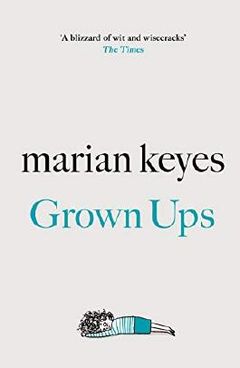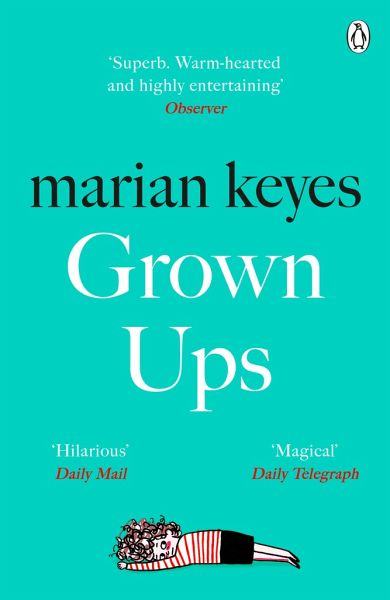

This disastrous away-event, in Antrim, is one of the funniest parts of the book, but I have never read anything as uncomfortably real as Jessie’s completely over-the-top reaction to it. A highly successful businesswoman, Jessie thinks of everybody and pays for everything and everyone, and then has a spectacular meltdown when her fiftieth birthday does not live up to her expectations. Grown Ups’ core family, Jessie, her second husband, Johnny Casey, and their offspring are so rich that their satellites sometimes have trouble keeping up. If fiction has taught me anything, it is to never, ever attempt anything like this in real life.

A necessary literary device to throw characters together in unfamiliar settings, communal family/friend away-events feature a lot in genre/popular fiction ‑ Alex Marwood’s The Darkest Secret, Lucy Foley’s The Hunting Party and TM Logan’s The Holiday are just three examples. There are also weekends in Mayo and Antrim.

Far more attractive is an Easter weekend in a Killarney hotel, complete with lake walks, mountain hikes, spa treatments and tension, and a Tipperary Electric-Picnic-type festival with outdoor forest baths set on wooden slats, fed by hot springs, with bath oils and fluffy white towels. The Uffizi gallery is given its due, but outside it a man plays the theme from The Godfather on an accordion, the model for the statue of David, a character remarks, must have been very cold, and the town centre consists of “seven-storey buildings in every gradation of yellow, from buttercup to straw, tottering over narrow, pedestrianized streets”. While the villa and the village are depicted as both beautiful and comfortable – wonderful escapist reading for a dreary February ‑ Florence itself is ho-hum underwhelming. In Grown Ups the entire extended family goes to Tuscany for a week. Marian Keyes delivers on all of these counts, and has the added bonus of being laugh-out-loud funny. Other attractions of popular fiction are vivid descriptions of what people do (work), how they look (clothes) and where they go (settings, not necessarily exotic, just well-described). I love any story that traces the changing fortunes of an interconnected cast of convincing characters, thrashing out their problems and their relationships. Significantly, Brooklyn is the only one of Tóibín’s novels I’ve ever managed to finish. Those of us who appreciate genre fiction were delighted when Marian Keyes reminded Colm Tóibín that his most popular book, Brooklyn, could easily belong to one of the literary genres he professed to despise.


 0 kommentar(er)
0 kommentar(er)
